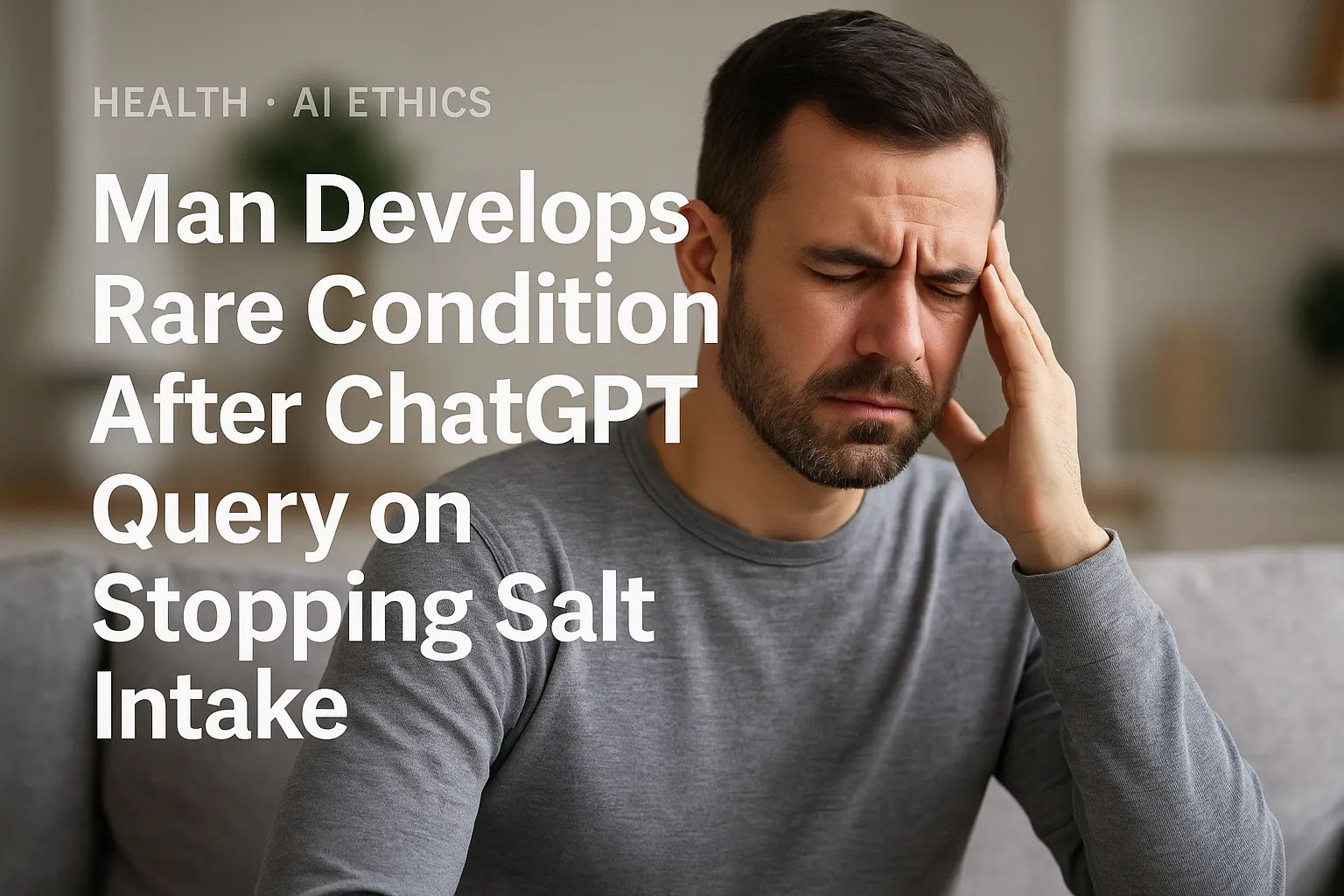Man develops rare condition after ChatGPT query over stopping eating salt
A man in his mid-30s has been diagnosed with a rare electrolyte disorder after following AI-generated advice to completely cut salt from his diet. The incident has reignited concerns over the risks of seeking health guidance from artificial intelligence without consulting qualified medical professionals.
The incident
According to local media, the individual sought dietary advice from ChatGPT, asking about the potential benefits of eliminating salt. After receiving a generalized response highlighting possible health improvements, he adopted a strict no-salt policy without professional supervision. Within weeks, he developed symptoms including severe fatigue, dizziness, and muscle cramps.
- AI advice led to the complete removal of salt from the diet.
- Resulted in a rare electrolyte imbalance requiring hospitalization.
- Health experts stress the importance of personalized medical consultation.
Medical reaction
Doctors confirmed that the patient suffered from hyponatremia, a dangerous drop in blood sodium levels. While reducing excessive salt can be beneficial for some individuals, completely eliminating it can disrupt nerve and muscle function.
The AI health debate
This case has sparked discussion among medical and technology experts about the responsibilities of AI platforms. While ChatGPT includes disclaimers advising users to seek professional help, incidents like this highlight the potential for misinterpretation and misuse of general health information.
What experts recommend
Nutritionists emphasize moderation rather than extreme dietary restrictions, and urge individuals to verify any health advice—AI-generated or otherwise—with a licensed healthcare provider.

